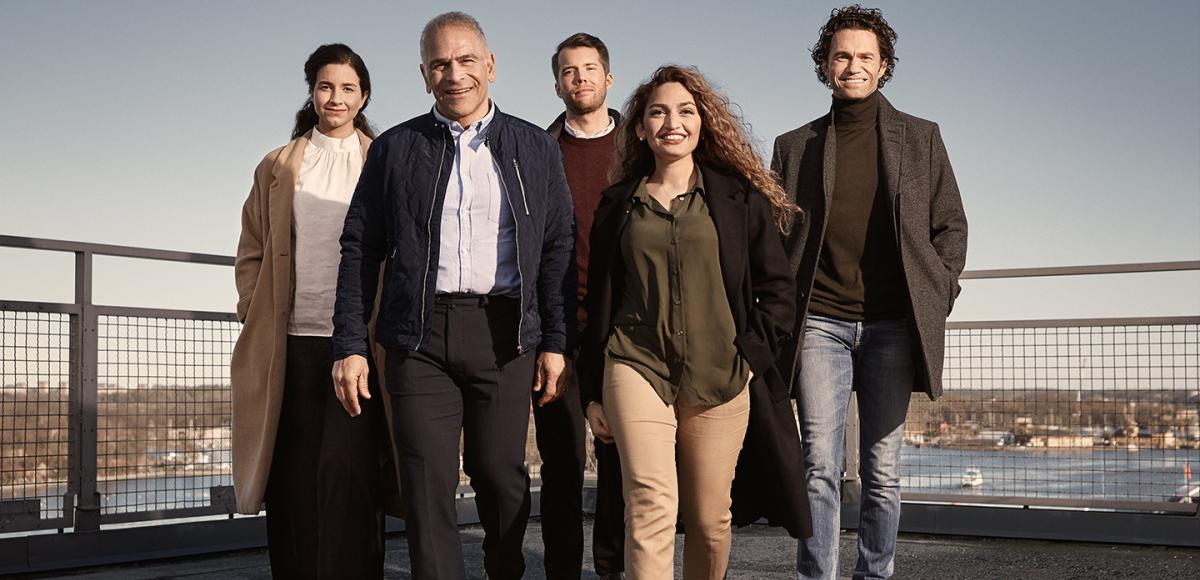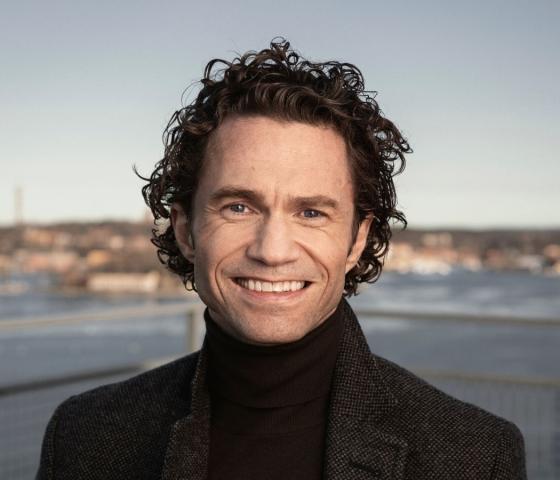
Welcome just as you are
Interview with Jonas Gustavsson, CEO and President at AFRY
With inclusion and diversity at the top of AFRY’s strategy, we wanted to find out more about CEO Jonas Gustavsson’s plans and why he considers inclusion and diversity to be prerequisites for AFRY as a company.
In this edition of AFRY Insights, we are focusing on brave steps and action in the transition towards a future sustainable energy industry. Within that context and thinking of the future of work, what brave steps are you taking in the inclusion and diversity space at AFRY and why is progress there important to your mission Making future?

As the transition to clean energy, inclusion, and diversity is about a transition towards a more sustainable future. This is why we have made inclusion and diversity central to our culture at AFRY and part of our strategy and sustainability targets.
In order to set a clear direction and ensure that we take action, one particular brave step we’ve taken is to target 40% female leaders by 2030. A target such as this needs commitment from executive management and is a promise to the organisation as well as investors, giving us a common agenda and focus to secure our progress going forward.
There are a number of good initiatives taking place at AFRY that support this target, such as the Accelerated Female Development Programme within our Energy business, which focuses on the development of our female colleagues as leaders. Concrete steps to increase diversity are generally brave as they challenge the status quo.
Since 2016, we have been running Immigrated Competence, a programme aiming to attract and recruit foreign-born engineers. The programme was initiated in Sweden after the war in Syria broke out in 2015 and many were forced to flee their country. Our substantial need for recruitment was a major factor in starting the project and almost 600 colleagues have joined AFRY through the programme since it was launched. Now, following Russia’s invasion of Ukraine, we are facing a new large wave of refugees, as people are forced to leave their home country. We believe that a good way towards integration for newcomers is to put skills to use as employees in a company, and to feel needed and included in the new country. People from the programme often bring new creative ideas and dynamics to the workplace. They open new ways of discussing and solving problems, so diversity creates engagement and harmony.
What challenges can you foresee to reaching AFRY’s target of 40% female leaders by 2030 and what’s your advice to companies who are trying to support similar targets?
It is a challenging target, both in terms of our starting point and in terms of more local structural hindrances like educational opportunities and parental leave regulations. A general lack of the competencies we are looking for, a competitive market, and a shortage of female candidates are true challenges for us. Our task is to retain our current female colleagues and leaders and make use of our potential to develop more female leaders internally, in addition to recruiting externally. We have to do this and achieve at least 2 percentage points progress each year.

It is difficult to give advice that changes the situation overnight. We are taking small steps in the right direction and this is long-term work, but our common strategic target gives focus and attention – a stretch gives a sense of urgency, forcing structured work to identify concrete brave actions and proactive planning. The 2030 target provides us with good momentum to make the change, as it’s a concrete aim and there is a long way to go to get there. It’s this challenge that makes the opportunity.
In general for inclusion and diversity, perhaps the biggest hurdle (and therefore the biggest opportunity) is getting the message through that people need to challenge themselves and their usual way of doing things and be self-aware about their own biases.
What we are currently doing at AFRY to support that, is building inclusion into our processes and working with preparing our workforce and leaders to become more inclusive, through, for example, unconscious bias training. At the end of the day, if you don’t follow new approaches, then you don’t see any shift in the results and therefore in the diversity at the company. There is so much to do in this space for AFRY and across the business community and so our list is very long of things we can work on.
It is proven that inclusion and diversity are good for business. How would you advocate for inclusion and diversity with others in the business community who do not understand its importance?
Progress within inclusion and diversity creates a competitive advantage as it safeguards competence, innovation, and growth. We see this as crucial at AFRY, to be able to stay relevant as an attractive employer and business partner and to stay at the forefront within our industries. We have a strong belief that inclusive and diverse teams, with deep sector knowledge, achieve better results, and are more competitive, creative, and profitable. We’re convinced that this will enable us to accelerate the transition towards a more sustainable society, while also ensuring that there are role models for future generations.
Within the business community, there is simply so much more innovation when there is diversity and when people feel included. This is something we can track and measure, in terms of development, retention, work environment and sense of belonging. Having expertise within a company that reflects the diversity of society as a whole provides new perspectives and helps to develop innovative solutions. The world is complex and it’s important to ensure that the bigger picture is taken into account when making decisions.
Inclusion and diversity are commercially and financially advantageous for companies and therefore quite simply more profitable. It will become difficult for companies to attract and retain the best talents without working actively towards diversity and inclusion. When it comes to inclusion and diversity, every word, every situation, and every effort counts.

There is still a long way to go in going beyond the theory into building an organisation that fosters intersectional diversity and inclusion. What do you see as the next obstacles for the business community at large to overcome?
Three significant obstacles that we face are: Educating the senior leaders who may be from another generation. Breaking stereotypes and unconscious. And getting people onboard and inspiring them to learn more. In order to actually make the shift, it’s really important for the existing business leaders to support this process towards inclusion and diversity and be allies towards minorities. Everybody needs to be included in the change – men, women, nonbinary – and the men have an important role, since they are often the majority. We need great men empowering those who are less represented to shift the balance and there need to be representation and diverse role models at all seniority levels.
We have had a lot of discussions related to the gender diversity target and one big challenge is how to translate the targets into the goals of the individual managers and how to measure that. This is one aspect that we have addressed this year and I’m looking forward to seeing the results and finding out how we can support that shift towards the right kind of behavior.
There is a long way to go and I hope that with inclusion and diversity at the heart of AFRY, along with our work being aligned with the discrimination laws and grounds (sex, transgender identity or expression, ethnicity, religion or other belief, disability, sexual orientation and age), we will be able to continue making meaningful progress. AFRY is nothing without its people. We have colleagues all over the world and we will always encourage them to be themselves.
